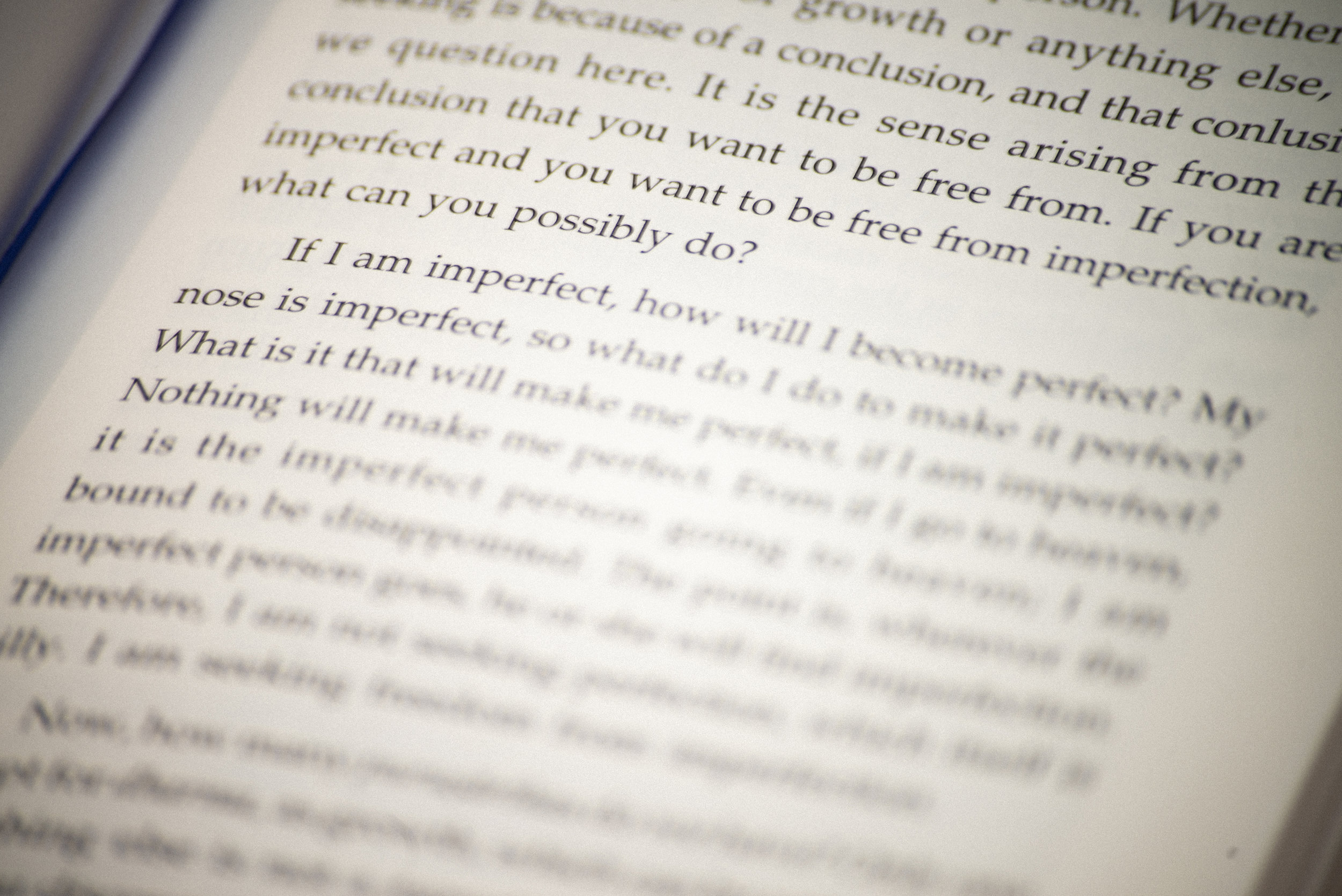
What is self inquiry?
Self inquiry is the constant awareness on the true nature of who you are. The path of self inquiry can be done by questioning ‘Who am I?’ which is said to be the most direct path towards self realization by Sri Ramana Maharshi. The object of enquiry is to realize that awareness is your true self, the subject. Only awareness is always present, everlasting, whole and complete. Having established this truth in ones life gives freedom, clarity and lasting happiness.
As said by many scriptures like the Bhagavad Gita, spiritual leaders like His Holiness the Dalai Lama and many philosophers we, human beings, all have the same pursuit in life, which is to be happy. Being happy is our birthright and having the knowledge on how to achieve this should be available for everybody.
Self inquiry is also a path of self exploration. It provides knowledge of our personal being and our inner being. Self inquiry continuously redirects the mind back to ‘I am the whole’ instead of ‘I am this person’. Please note that these teachings don’t negate the person that we are. Of course there is a body and a person to take care of, but these teachings bring us back to the essence of what is lasting and what doesn’t last. If we get this knowledge and know how to integrate into our day to day life, joy will flourish in everything that we do.
Vedanta, the ’source’ for self inquiry
Vedanta is a means of knowledge for revealing the non-dual nature of reality and is not a philosophy, not a school of thought, not a system of ideas, not a religion, nor something practiced. Vedanta means end (anta) of knowledge (veda) and starts of by revealing to us the highest knowledge as in ‘I am That’. Instead of a limited, small and fearful person, I am infinite consciousness, awareness and happiness itself.
To be able to understand this truth, to really know what happiness means, how we are as a person and how the world works, we need to correct our confusion about this. So we need knowledge. Only knowledge can take away our ignorance, not any practice or experience can do the same. For knowledge to take place we need 3 factors;
The one who knows, the knower > it may be clear that I need to be present in order to perceive anything happening
The object of knowledge > there must be something (a sound, a feeling, a smell, a taste or a view) happening for me to perceive
The means of knowledge > just having ears to hear or eyes to see is not enough to get the proper understanding, the mind must be tuned in correctly as well
Already this information can be quite the challenge to digest so we need a proper way to prepare the mind for this knowledge to settle in. So what prepares the mind for the knowledge of Vedanta? There are many practices like yoga asanas (certain postures), pranayama (breathing exercise), seated meditation or other techniques that are very helpful in calming down the restless mind and keeping our body healthy. But they are not the direct way to prepare the mind for self-knowledge. We need to have a state of mind that is able to reflect certain universal values and ethical attitudes, as is mentioned in the Bhagavad Gita. This attitude of how to approach ourselves and the world around us is something that each person knows about. We may not all be as ‘good’ in them, but righteous behavior like non-hurting, truthfulness, compassion and charity is known to everyone. And these are qualities that we can develop, so we need knowledge in how to achieve this.
For those who seek this knowledge, a teacher who is grounded in the scriptures, trained in the traditional method of interpretation and established in an understanding of non-duality is necessary to ensure the knowledge of the Rishis (the saints who revealed this truth for more than 5000 years ago) as it was meant by the Rishis, so this knowledge will be understood correctly without confusion or misinterpretations.
“Vedanta is neither a theory nor a practice.
It is a means of knowledge to know just the truth about you.”
This timeless, liberating knowledge has been revealed in the Upanishads, the ancient scriptures of India. Being the end of the Vedas (both literally and metaphorically) the Upanishads are also known as Vedanta.
Personal note
The beauty of Vedanta is, that it unfolds the knowledge systematically, cultivating the right requirements and attitude to prepare the mind, so you are able to understand this wisdom when the time is right. On this website I will use this knowledge to explain certain topics in the way as it was taught to me. Never will I claim this knowledge to be mine, I am merely a enthusiastic and inspired student passing on this knowledge.
The words I use are carefully chosen and connect to my personal way of explaining and translating these ancient teachings in an authentic yet modern way. Words are bound to change and can mean many things for others. In the end they’re all just words trying to explain something that can not be explained. Yet I will do my very best to do so in a loving and caring way with all the respect it deserves.
Much gratitude goes out to my main teacher Swamini Atmaprakashananda, student of Swami Dayananda Saraswati. It’s an honor and blessing to have such a humble, traditional and knowledgable teacher who’s so devoted and available to her students.
